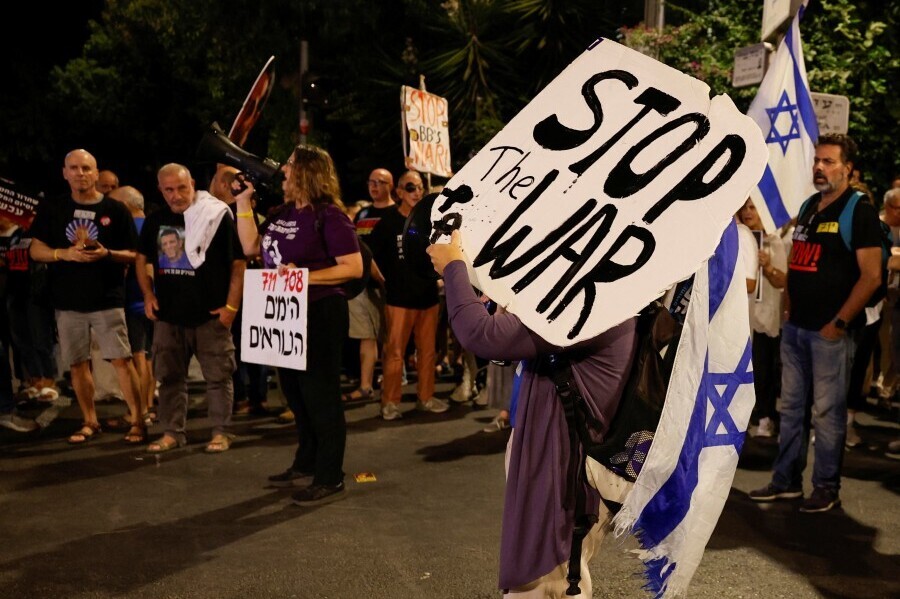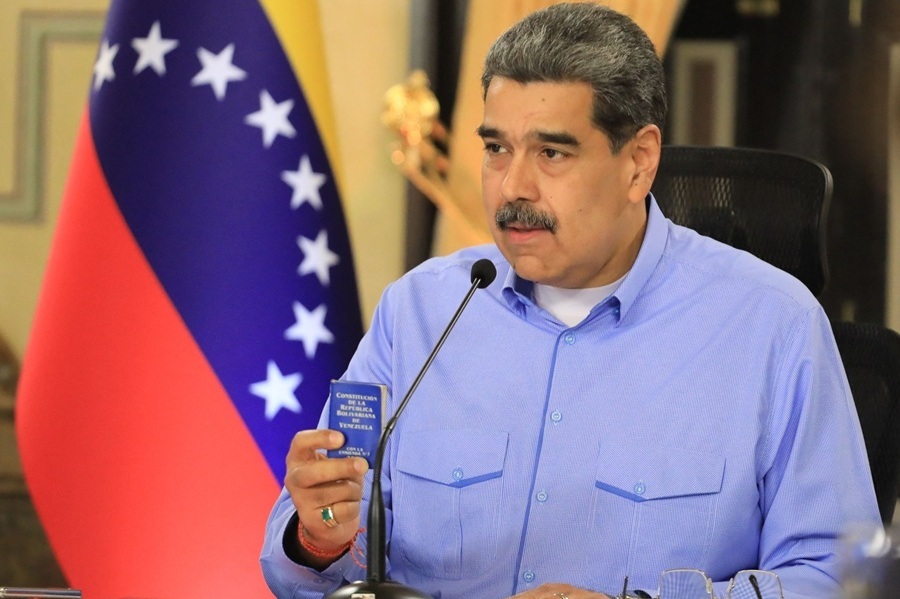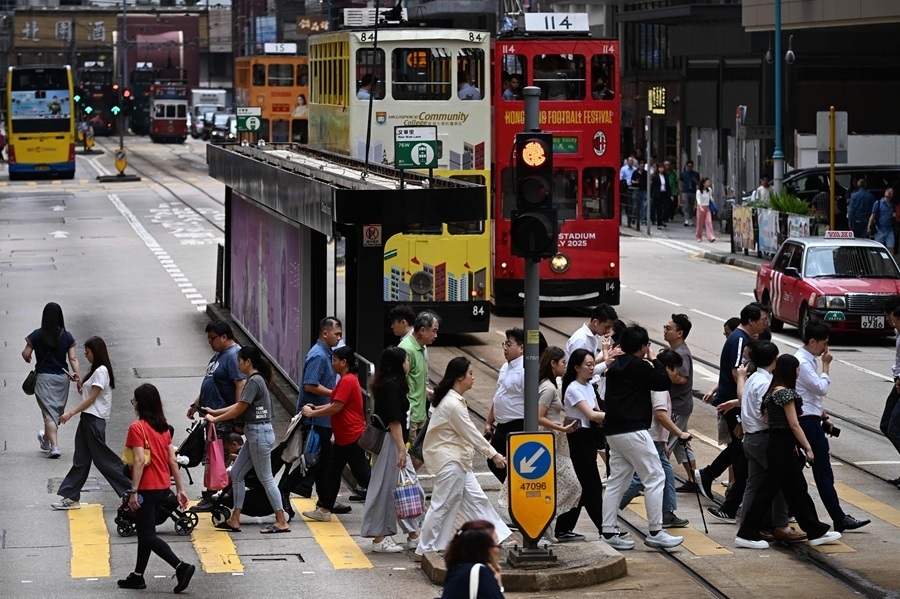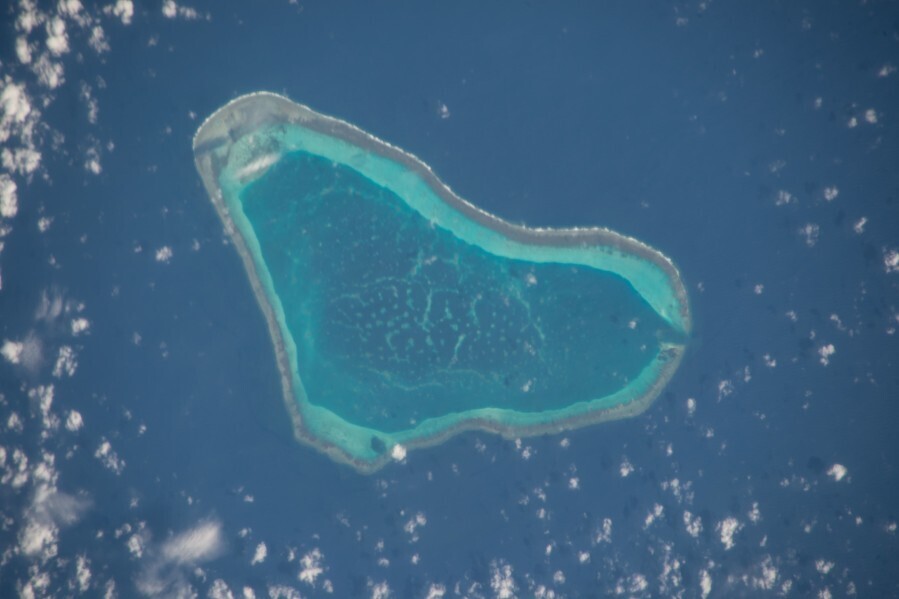Hong Kongers moving to Taiwan: Temporary haven or permanent home?
Following the anti-extradition protests in Hong Kong in 2019 and the passing of the national security law last year, Hong Kongers are migrating abroad or thinking of migrating in record numbers. One major destination is Taiwan, with its banner of freedom and democracy. But for these migrants pushed out of their home city by circumstance, is Taiwan a temporary haven, or a permanent home? Zaobao correspondent Woon Wei Jong speaks to Hong Kongers in Taiwan.
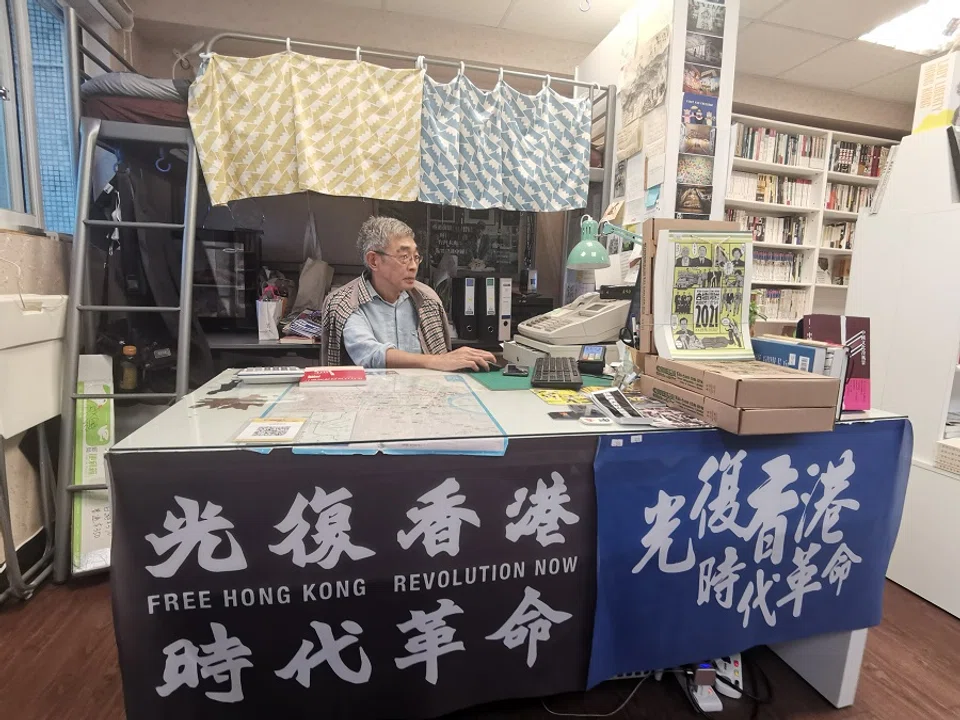
(Photos: Woon Wei Jong)
Taipei, noon, 30 December 2020. In 10-degree weather, a police patrol car pulls up in an alley opposite National Taiwan University, in front of the Aegis restaurant. Police officers survey the entrance for a minute, take some photos, and leave.
An hour later, another patrol car approaches. The officers again survey the entrance, take photos, and leave.
Following the protests in Hong Kong, some young Hong Kongers and their family and friends have moved to Taiwan. Aegis was established in April 2020 to help them find jobs and settle down in Taipei. In October 2020, the restaurant was vandalised with chicken faeces - four suspects in Taiwan were arrested and charged. The Taipei District Prosecutor said the instigator is an unidentified backer from mainland China.
Out of safety considerations, Aegis staff do not take interviews. However, Zaobao understands that before the vandalism attack, the Aegis team had set up an online store, and to date, Aegis has helped over 25 Hong Kongers to settle down in Taiwan.
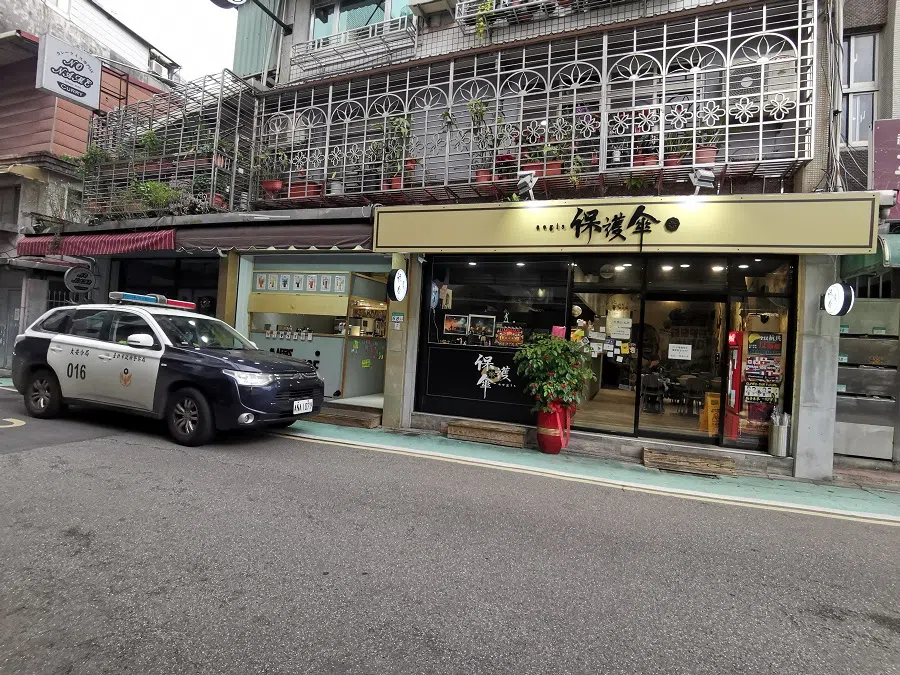
It is not a unique occurrence for the police in Taiwan to go on patrol and ensure the safety of this particular community of Hong Kongers. Near an exit of Zhongshan metro station near the bookshop Causeway Bay Books, this reporter spotted a police officer approaching to make sure that everything was OK. The officer confirmed that there are patrols throughout the day.
Causeway Bay Books was opened by former Hong Konger bookseller Lam Wing-kee, 65, who migrated to Taiwan following controversies from politically sensitive material sold at his Hong Kong bookshop of the same name. Four days before Causeway Bay Books' opening on 25 April 2020, Lam had red paint splashed on him while he was having coffee nearby - the three culprits were jailed or fined.
Both stores told Zaobao that with these police patrols, they were able to operate comfortably without worrying about security.
Taiwan has become an "aegis" and haven for some Hong Kongers who had to leave. But for how long? Also, a greater number of Hong Kongers moved to Taiwan in recent years because they could not take the chaos in Hong Kong; would they find a sense of belonging in Taiwan?
Record number of Hong Kongers moved to Taiwan last year
Last year, a record number of Hong Kongers received Taiwan resident certificates. Latest figures by Taiwan's National Immigration Agency show that in the first 11 months of 2020, 9,501 Hong Kongers became Taiwan residents for reasons of family, investments, employment, or education, with an increase of 2,027 people in November alone. For comparison, the figures were 5,858 and 4,148 for the whole of 2019 and 2018 respectively.
Hong Kong's social unrest and political and economic situation have prompted many Hong Kongers to think about migrating. A telephone poll conducted by the Hong Kong Institute of Asia-Pacific Studies at the Chinese University of Hong Kong (CUHK) in September 2020 showed that 43.9% of respondents said they would migrate if they had the chance to, with 15% of respondents prepared for the move. Based on Hong Kong's population of about 7.5 million, that works out to about 1.12 million people prepared to move.
The poll also showed that the most popular destinations (in order) were the UK, Australia, Taiwan, and Canada. Of these, the UK has relaxed its rules - from the end of this month, it will open a Hong Kong British National (Overseas) visa for BNO citizens and their close family members. The UK Foreign Office estimates that a possible 200,000 Hong Kongers could migrate there over the next five years.
"I wish the SAR government would not just follow instructions, but would also work hard to win over Hong Kongers' support, ease their woes, and take care of them." - Celia Ching, student at National Chung Cheng University and head of the university's Hong Kong and Macau students society
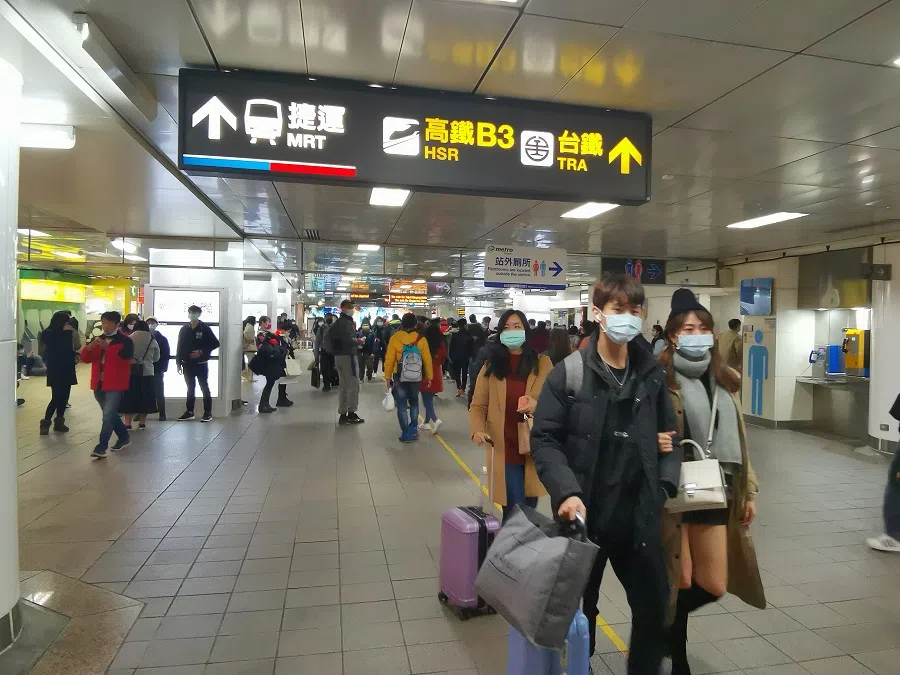
In terms of a region with a high ethnic Chinese population, Taiwan is the destination of choice for many Hong Kongers. Taiwan's Mainland Affairs Council told Zaobao that last year, many Hong Kong students applied for resident status after Taiwan's school term resumed in September; Taiwan also received more Hong Kong students in 2020 than in previous years, and they accounted for more than half of the approved resident certificates in October and November 2020. These are in fact the main reasons for last year's spike in the number of Hong Kongers receiving Taiwan resident certificates.
Celia Ching, 19, a second-year student in the Department of Biomedical Sciences at National Chung Cheng University is the head of the university's Hong Kong and Macau students society. While sifting through last year's freshman information, she found that nearly half of these students from Hong Kong decided to study in Taiwan because of the anti-extradition protests.
Ching's parents feel helpless about the situation in Hong Kong and have advised her to focus on her studies, but Ching says Hong Kong is important to her as that is where her roots are. She says, "I wish the SAR government would not just follow instructions, but would also work hard to win over Hong Kongers' support, ease their woes, and take care of them."
She is thankful that the Taiwanese students are accepting of the Hong Kong students, and is enjoying Taiwan's science and research environment as well as the diverse options that it offers. "Taiwan is cheaper than Hong Kong, and it gives those of us from poorer families a chance to study overseas," she says.
"Now, I've migrated to Taiwan, but it is not a real country and the future is uncertain. I am worried that my son's generation will have to migrate again." - Leung Wai-chiu (pseudonym), Hong Konger cafe owner in Taiwan
Migrating for job opportunities and quality of life
Many Hong Kongers migrate out of concern for their children's future.
Leung Wai-chiu (pseudonym), 43, who runs a cafe near Ningxia Night Market, says that he witnessed a mass of students rushing into the Legislative Council on 1 July 2019. However, after participating in several anti-extradition protests, he came to the conclusion that "the situation would not change no matter what, and a sense of powerlessness set in". He decided to migrate, hoping that his nine-year-old son would grow up in a better environment.
To Leung, Taiwan's shop rentals and home prices are lower, and there are more opportunities to set up a small business on the island. However, the BNO holder is also considering migrating to the UK when the conditions are relaxed. "My father migrated to Hong Kong from the mainland," he says. "Now, I've migrated to Taiwan, but it is not a real country and the future is uncertain. I am worried that my son's generation will have to migrate again."
Apart from political considerations, the possibility of business ownership and having a better quality of life are also pull factors for Hong Kongers to move to Taiwan.
"Today's Hong Kong is different from the Hong Kong that I grew up in. If I have to continue living in Hong Kong, I may have to make some adjustments and be more careful speaking and commenting online or in daily life." - Li Sze-hang, Hong Konger beauty salon owner in Taiwan
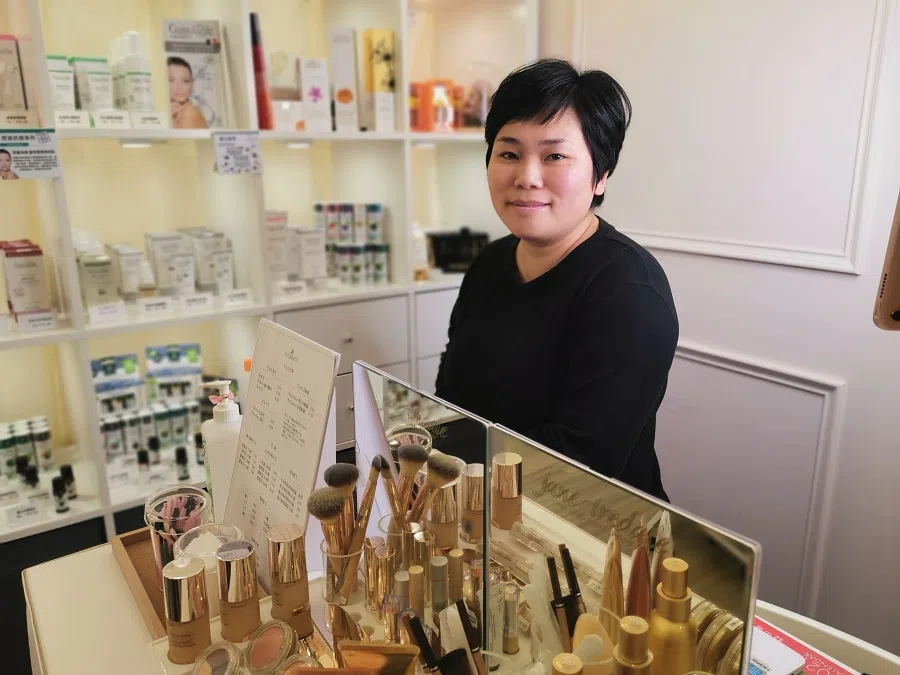
Li Sze-hang, 43, who owns a beauty salon in New Taipei City near Xinzhuang metro station, says that she and her structural engineer husband were exhausted with their hectic life in Hong Kong. Three years ago, after "study trips" to various countries, they decided to migrate with their seven-year-old daughter to Taiwan, just "75 minutes away by air, shorter than a movie", which makes it convenient for them to return to Hong Kong to visit their elderly parents.
Taipei, with its relatively high population density and low rental, is also a good place to start a business, while the warmth and vitality of Taiwanese society further brightens Li's stay in Taiwan. She says she was really happy to receive her Taiwan identification card on Christmas Eve last year.
As for Hong Kong's political situation, she claims she does not understand what is going on. She says, "Today's Hong Kong is different from the Hong Kong that I grew up in. If I have to continue living in Hong Kong, I may have to make some adjustments and be more careful speaking and commenting online or in daily life."
"People came to the office first thing in the morning, or transferred the HK$30,000 deposit just to get in the queue to migrate, without asking for details." - Shirley Cheung, Hong Konger, founder of Formosa Immigration Consultants
Recounting her experience with this wave of Hong Kong migrants, Formosa Immigration Consultants founder Shirley Cheung gets nervous. She recalls that in November 2019, after a face-off between the Hong Kong police and university students on campus, the six lines of her company's office in Hong Kong Shatin were "ringing off the hook".
"Hong Kongers' sense of panic was at an all-time high," she says. "We were taking calls non-stop and many people could not get through; our staff in Hong Kong were at their breaking point. We had to go on Facebook to urge people to make long-distance calls to our Taipei office and rope in the help of our Hong Kong colleagues here. The NT$300,000 (about S$14,000) budget we set aside for Google Ads ran out in a week, as we quickly got over 10,000 search hits. People came to the office first thing in the morning, or transferred the HK$30,000 deposit just to get in the queue to migrate, without asking for details."
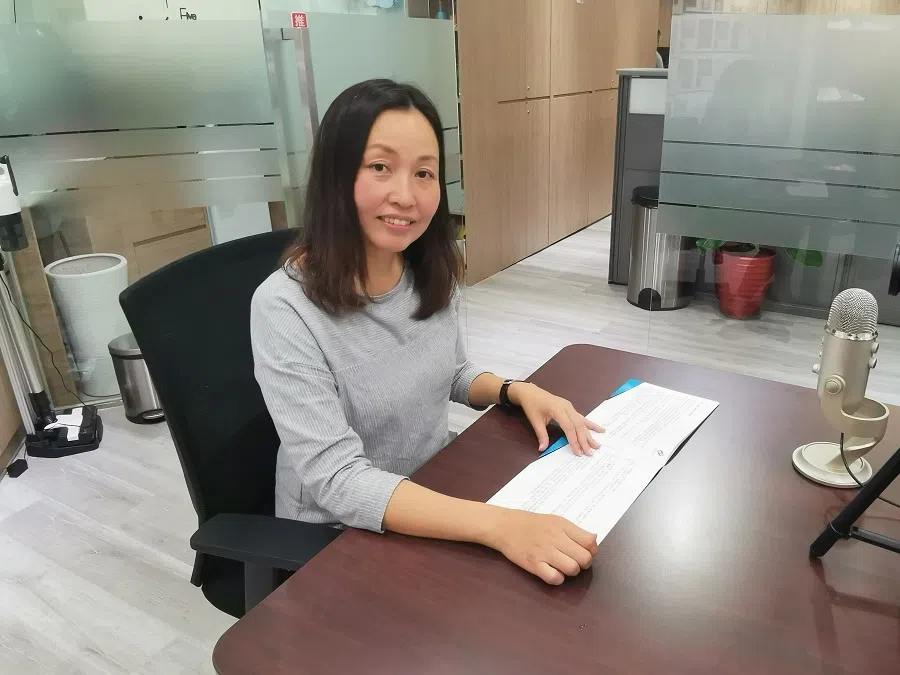
Cheung also remembers that after their initial bout of panic, Hong Kongers soon began making plans to migrate to the UK or Canada. However, many people started to consider Taiwan again after a mutant strain of the coronavirus was discovered in the UK.
Cheung and her husband are Hong Kongers who once considered migrating to Singapore. But their love for hiking eventually led them to head for mountainous Taiwan. Cheung has opened offices in the mainland, Hong Kong, and Taiwan; she was shrewd enough to open a third branch in Taiwan based on a hunch she had four years ago: conflict between the mainland and Hong Kong would continue to deepen and more people would require immigration services.
However, she often reminds Hong Kongers that "the small blessings and little happiness in life that Taiwan brings will not feed you". While Taiwan is a good place to live in, one's income may only be a quarter of what they can earn in Hong Kong. In addition, as English is not an official language and the medium of instruction in schools is in Mandarin, it will be tougher for their kids' qualifications to be recognised internationally and for them to transit to tertiary institutions abroad when the time comes.
Ever since Taiwan implemented new regulations for investment immigration last year - an investment of NT$6 million (roughly S$282,000), the setting up a physical company and keeping it in operation for at least three years and the hiring of two Taiwanese staff - more Hong Kongers are migrating to the economic boomtowns of Taipei or New Taipei City where they can make some money and meet the immigration requirements, rather than to the quieter cities of Taichung or Taoyuan.
Bookstore owner cherishes freedom and safety in Taiwan
Ever since he reopened Causeway Bay Books in Taiwan, Lam has been sleeping on a metal bunk bed behind the cashier counter and pays NT$40,000 (roughly S$1,885) in rent per month for the store that also doubles up as a living space. His kitchen is a shelf he set up on his long and narrow balcony. When he gets tired, he has a cigarette, brews a pot of tea, and chats with his customers - this is a carefree lifestyle he did not have in the past few years.
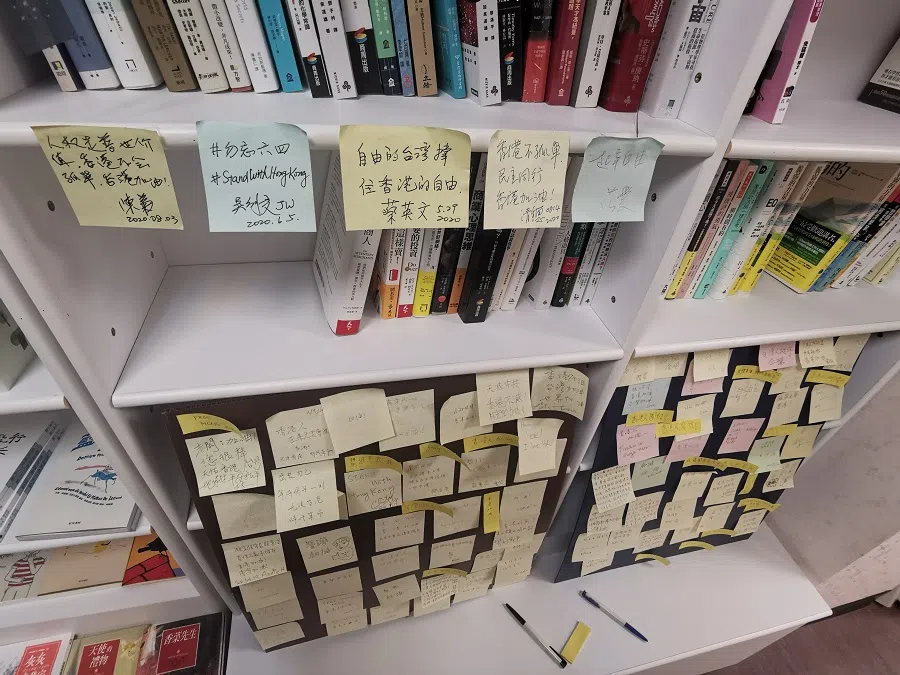
Lam founded Causeway Bay Books in Hong Kong in 1994. In 2015, he was arrested at Luohu Port between Hong Kong and Shenzhen while crossing the border and had lost his freedom for eight months. In April 2019, he emigrated to Taiwan. A year later, he raised NT$6 million (roughly S$282,000) through crowdfunding and reopened Causeway Bay Books. Taiwan President Tsai Ing-wen even visited the bookstore, leaving behind the message "Free Taiwan supports freedom in Hong Kong" on the "Lennon Wall".
Lam says that he is grateful to Taiwan for giving him a work permit which allowed him to settle down and continue selling and reading books.
With a bitter smile, Lam recalls that every move of his was tracked when he was still in Hong Kong following the furore his bookstore had caused. In Taiwan, the police would patrol three times a day instead. He thus treasures the freedom and safety he enjoys in Taiwan.
Confident of Hong Kongers' ability to adapt
On the controversial books on political intrigue that landed him in the soup, Lam says they were "useless books" that Gui Minhai sold to make money when the latter acquired Causeway Bay Books in 2014. The books that Lam now sells in his Taipei bookstore mainly cover political topics in the mainland, Hong Kong, and Taiwan, as well as books on literature, history, and philosophy. He hopes to encourage readers to reflect on the individual and the state of national affairs from diverse perspectives and through political and economic discourse.
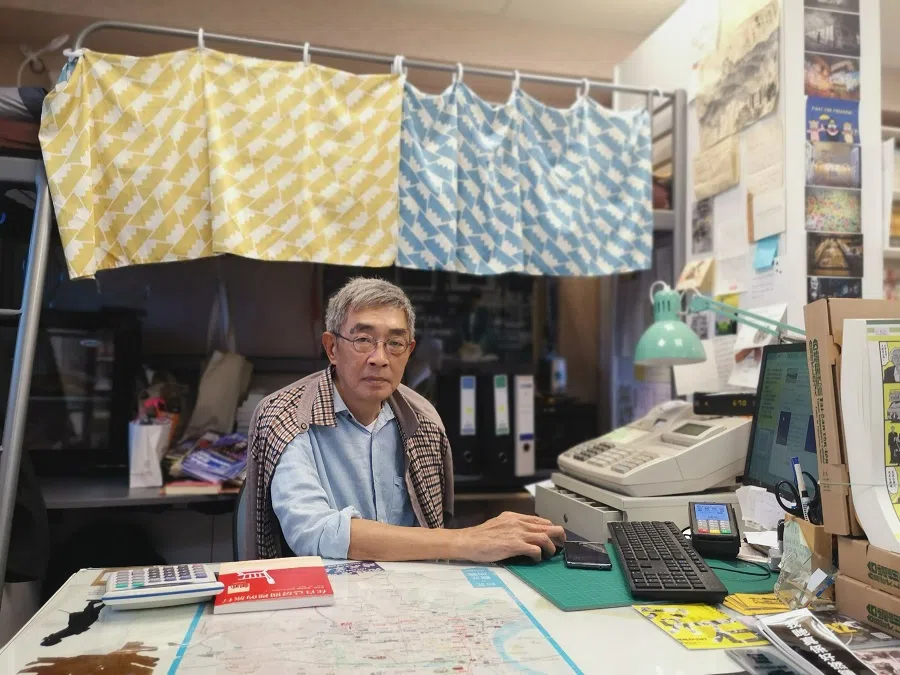
He laments the fact that Hong Kong will never return to the past, but he is confident of Hong Kongers' ability to improvise and adapt, saying self-mockingly that his act of fleeing to Taiwan was also a type of "improvisation".
Hong Kong would gradually become more like Shenzhen or the mainland. - Professor Bennis So, department chair of the Department of Public Administration, National Chengchi University
Hong Kongers in Taiwan fear Hong Kong will be just another Shenzhen
Professor Bennis So, department chair of National Chengchi University's Department of Public Administration, thinks that this migration wave is "panic behaviour driven by Hong Kongers' denial of the overall situation". It also reflects that Hong Kongers' preference for Taiwan is at an all-time high, while their regard for the mainland has hit rock bottom, since the time that cross-strait exchanges began to increase in 2008.
Prof So believes that while Hong Kong will maintain "one country, two systems" and "a legal and administrative system on the surface" in the next three years, its culture and ways of life will gradually converge with China's. The population of mainlanders in the northern districts of Hong Kong will gradually increase, while the Cantonese culture would slowly be marginalised. Hong Kong would gradually become more like Shenzhen or the mainland.
"Hong Kongers at home and abroad should continue to go about their daily lives under the existing legal framework whilst fighting for moderate freedom to maintain their rights and freedom to creative work, education, and Cantonese culture." - Professor Michael Chan, Department of Life Sciences, National Chung Cheng University
Professor Michael Chan of National Chung Cheng University's Department of Life Sciences is one among a few Hong Kong medical professors who have migrated to Taiwan. His wife is Taiwanese and the family of four has been living in Taiwan for 14 years. Since Hong Kong's anti-extradition protests broke out, the couple has acted as a guarantor for over 14 Hong Kong professionals moving to Taiwan, and helped them settle down, find a job at the hospitals, or hire local staff upon their arrival in Taiwan.
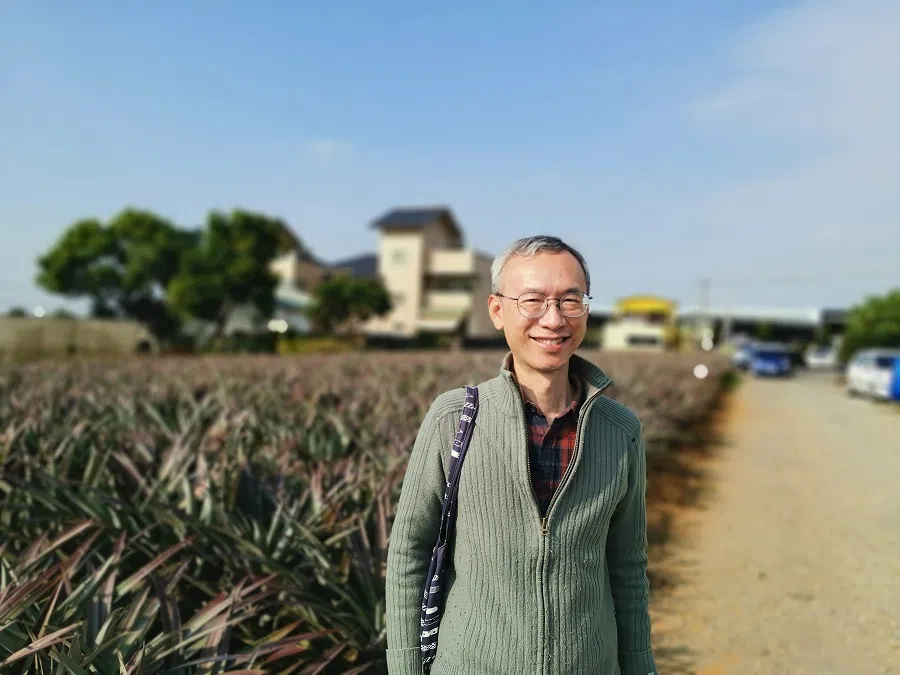
Prof Chan says, "Hong Kongers learnt to abide by the law under British colonisation. At the same time, they made use of limited resources to overcome difficulties and are flexible and adaptable. Hong Kongers at home and abroad should continue to go about their daily lives under the existing legal framework whilst fighting for moderate freedom to maintain their rights and freedom to creative work, education, and Cantonese culture."
Famed Hong Kong lyricist and entertainment tycoon also in Taiwan
Among numerous Hong Kongers who have migrated to Taiwan, the most famous of them all is none other than popular lyricist Albert Leung. According to his close contacts, Albert Leung's luxurious mansion is over 2,000 sq ft in size, worth around S$10 million, and surrounded by forest and sea.
The Mainland Affairs Council has also confirmed that Hong Kong entertainment tycoon Charles Heung has recently applied for a dependent visa at Taiwan's National Immigration Agency. His application is now under review by the immigration department.
Due to pandemic lockdowns, lack of governmental manpower to deal with such cases and also the need to be selective and careful, many applicants could still be left waiting a year after their application.
Academic: Taiwanese generally accepting of Hong Kongers
What do the Taiwanese think of the increasing number of Hong Kongers who have migrated to Taiwan? Do they think that it is easy to invite them over, but hard to make them leave? Do they sympathise with them since they are in the same boat?
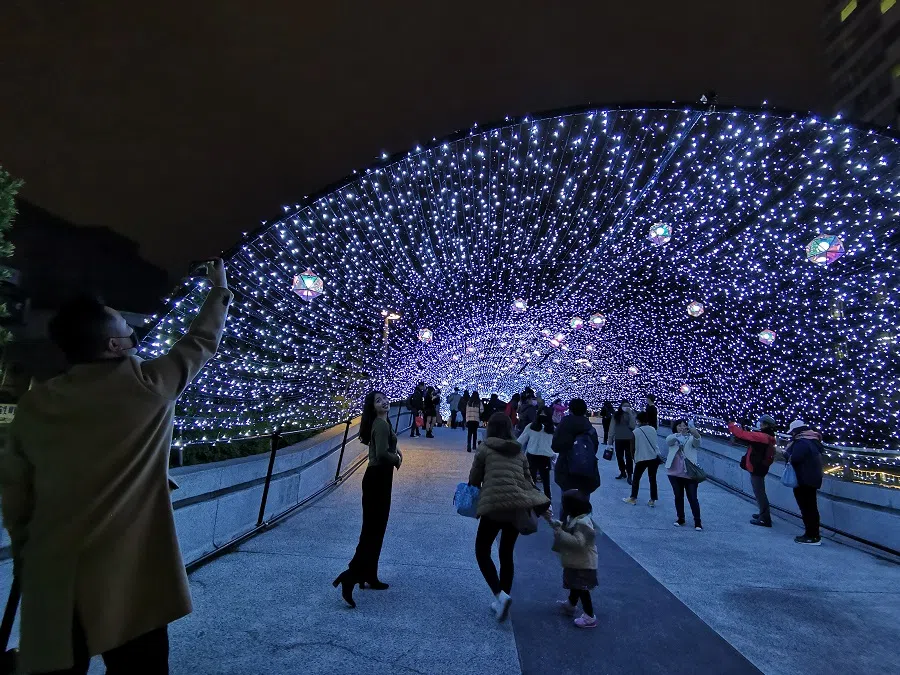
Cheung told us that the number of Hong Kongers who apply to come to Taiwan is at least three or four times those whose applications get approved. Due to pandemic lockdowns, lack of governmental manpower to deal with such cases and also the need to be selective and careful, many applicants could still be left waiting a year after their application.
Cheung advises Hong Kongers not to harbour illusions about Taiwan. Apart from prolonging immigration application through administrative means, Taiwan has also set a high threshold for immigrants: those with a lower education background, the old and aged, housewives, and Hong Kongers born in the mainland all face difficulties in obtaining a residence certificate, let alone an identification card.
She also thinks that it will take a long time before Taiwan opens its doors to Hong Kong visitors again. This is because Taiwan is worried that they would not leave once they are here. Not only that, Hong Kongers might even hold press conferences, accusing the Taiwan government of "relying on Hong Kongers to get votes but only paying them lip service".
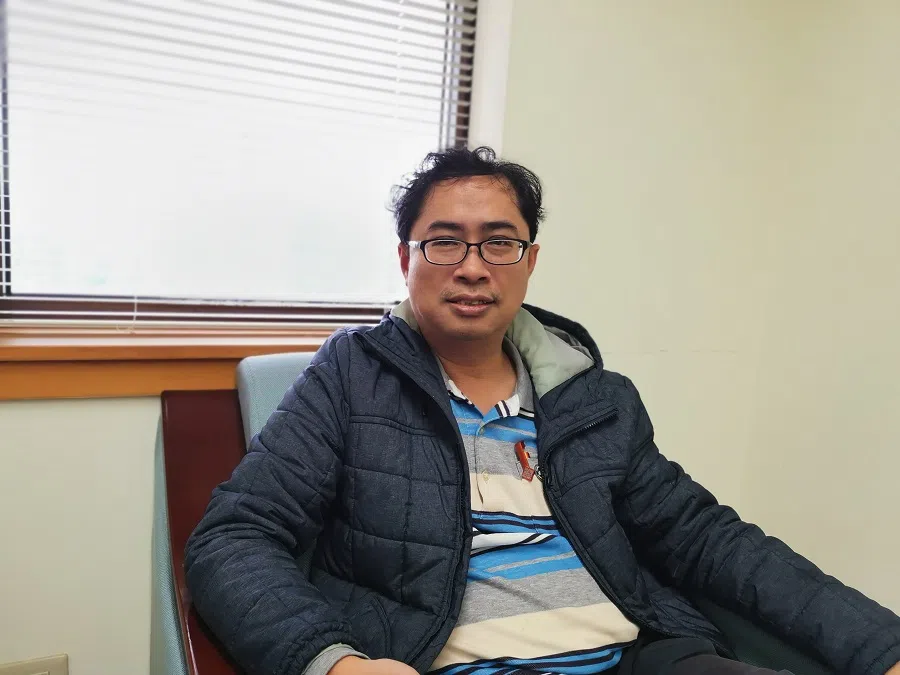
However, Prof So believes that the Taiwanese are generally sympathetic towards and accepting of Hong Kongers. Compared with migrating to Europe or the US, he thinks that "it is easier to find comfort in people who are also on the same boat in Taiwan". Besides, while the government has not publicised their efforts on protecting Hong Kongers in a high-profile way, Hong Kongers are at least not ostracised.
Prof So, who has been in Taiwan for over a decade since he migrated from Hong Kong, often conducts lectures for civil servants. Through his lectures, he hopes that Taiwan can learn from some of Hong Kong's positive social attitudes, such as having a zero-tolerance approach to corruption, playing by the rules and having a fair fight.
Related: How much help should Taiwan offer Hong Kong protesters? | [Photo story] Hong Kong national security law: A different birthday for Hong Kong | Every man for himself as Hong Kong's opposition caves under weight of national security law | Why Taiwanese are pro-Japan but anti-China | Detained Hong Kong bookseller Gui Minhai hits the headlines again

